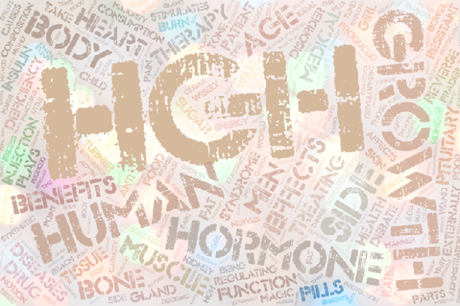
The connection between is not always easy to understand. Growth hormone, also called growth hormone deficiency and hypoglycemiahuman growth hormone (HGH) has both a direct and indirect impact on blood sugar levels. As we age, our bodies begin to produce less GH than they did when we were young. Growth hormone production peaks during puberty, levels off in one's twenties, and begins to decline by the age of thirty. However, we continue to produce GH throughout our lives - just to a lesser degree.
As growth hormone levels change, they also influence the production of other hormones, including insulin growth factor 1 (IGF-1) and testosterone. By reducing the stimulus that supports testosterone production, a spiraling result also impacts estrogen and dihydrotestosterone (DHT) levels. Growth hormone imbalance also influences cortisol, glucagon, insulin, and epinephrine levels. In other words, maintaining a proper hormonal balance is critical for normal bodily functions - blood sugar regulation, included.
Can HGH cause hypoglycemia if its levels get too low?
What Is Growth Hormone Deficiency?
Growth hormone deficiency occurs when the amount of GH secreted by the pituitary gland no longer meets the needs of the body. When that happens, a person will start to exhibit symptoms of this decline. In the early stages of GHD, an adult can make some basic lifestyle changes that may help increase growth hormone secretion. Getting proper sleep and exercise, losing weight, reducing stress, and even intermittent fasting can help boost growth hormone production.
If the symptoms of growth hormone deficiency persist, testing is in order to measure GH blood levels. The most common symptoms of GHD in adults include:
- Lack of energy
- Insomnia or poor sleep
- Loss of muscle and bone mass
- Increased abdominal fat
- Lack of focus, memory loss, and impaired cognitive functions
- Premature physical signs of aging including thinning hair and wrinkles
- Sexual performance decline
- Blood sugar and cholesterol level changes
- Weakened immunity
- Mood swings, anxiety, and depression
Hypoglycemia, itself, is not a disease, rather it is a condition that occurs in response to something else. When a person has hypoglycemia, his or her blood sugar levels drop to a very low point. That is why drinking orange juice or eating a piece of chocolate can help improve the symptoms. People with diabetes - a condition that occurs when there are elevated levels of blood sugar - can develop hypoglycemia because insulin treatment can lower blood sugar levels by increasing glucose uptake by the cells. Insulin enhances the sensitivity of the cells to glucose, making it possible for better use of glucose. As the cells take in the glucose, blood sugar levels decline.
In severe cases of hypoglycemia, a person can experience fainting or seizures. Next up, we look at how hypoglycemia influences growth hormone.
Does Hypoglycemia Cause Growth Hormone Deficiency?
Does Growth Hormone Deficiency Cause Hypoglycemia?
Now we look at the effects of growth hormone on lipolysis and ketogenesis and how that impacts hypoglycemia:
- Lipolysis breaks down lipids through a process called hydrolysis where it turns fat cells (triglycerides) into glycerol and free fatty acids (FFAs). When the body needs energy for exercise, or when fasting reduces food intake, it turns to lipolysis for the mobilization of stored fat.
- Ketogenesis produces ketone bodies used to break down fatty acids to provide the needed energy. The keto diet is a prime example of this as fasting causes an increase in growth hormone production necessary to stimulate lipolysis and ketogenesis.
Impact of Human Growth Hormone on Hypoglycemia
By using HGH therapy, we can effectively balance these hormone levels. HGH has helped reduce and sometimes eliminate insulin use in adults with type 2 diabetes. Hormone specialists carefully monitor blood glucose levels in people receiving HGH therapy. Remember, HGH helps the body metabolize stored fat which aids in weight loss. Doctors recommend losing weight for anyone with diabetes.
For further information about growth hormone deficiency and hypoglycemia, please contact Nexel Medical for a confidential, no-cost consultation.


